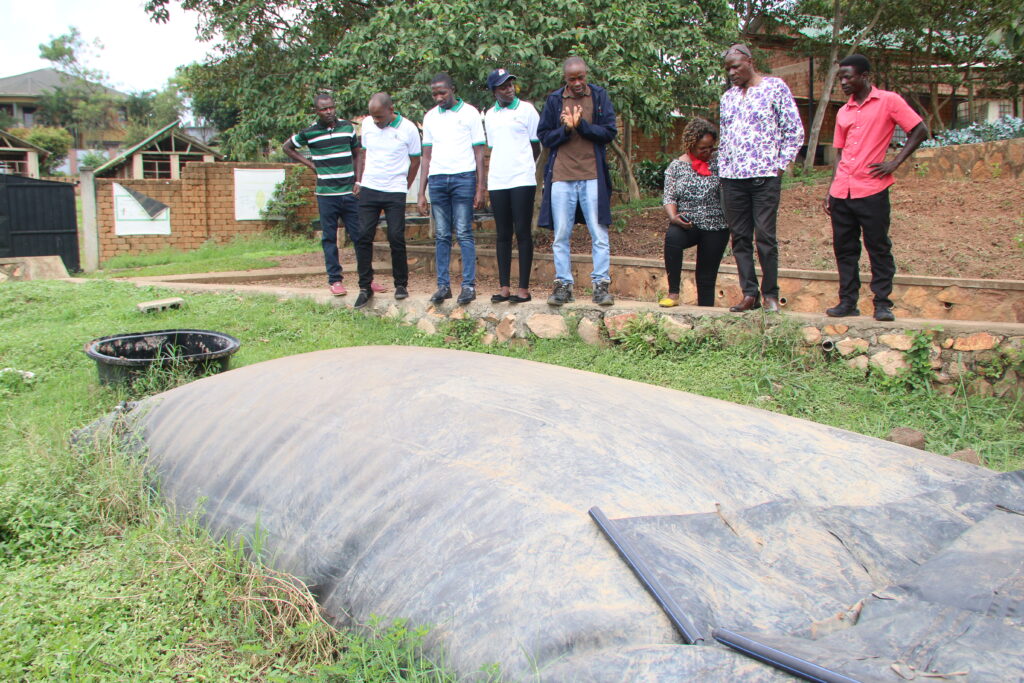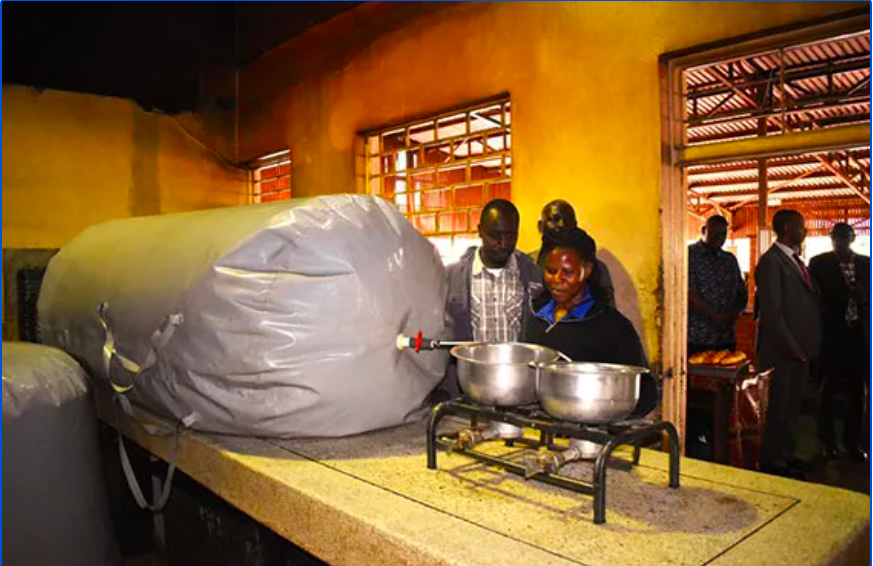

Biogas Revolutionizes Uganda’s Cooking Sector Amidst Environmental and Health Challenges.
As Uganda strives to address environmental and health issues linked to traditional cooking fuels, biogas has emerged as a promising alternative that is transforming the nation’s cooking sector. In a country where over 90% of households rely on wood and charcoal for cooking, biogas is not only helping to reduce deforestation but also provides a cleaner, safer cooking solution that benefits both urban and rural households.
The Heavy Costs of Traditional Cooking Fuels
Uganda’s dependence on firewood and charcoal for cooking has had a severe impact on both public health and the environment. According to the Ministry of Energy and Mineral Development, cooking with solid fuels contributes to 20,000 deaths annually due to respiratory diseases from indoor air pollution, especially among women and children who are often exposed to these fumes indoors. The impact on forests is also profound: Uganda loses about 2.6% of its forest cover every year, largely due to firewood and charcoal production, exacerbating climate change and environmental degradation.
Biogas as a Sustainable Solution
Biogas is a renewable source of energy generated through the anaerobic digestion of organic matter, including animal manure and plant waste. The adoption of biogas technology is growing in Uganda, particularly in rural households that have access to livestock waste, a key raw material for biogas production. Through organizations like the Biogas Solutions Uganda Limited and the Uganda Domestic Biogas Program (UDBP), biogas systems are being installed in homes across the country, enabling families to produce their own clean cooking fuel. As of recent reports, over 13,000 households in Uganda have installed biogas systems, helping to reduce dependency on firewood and charcoal significantly.

Health and Economic Benefits
The adoption of biogas technology in Uganda offers numerous health and economic advantages. For one, biogas burns much cleaner than wood or charcoal, drastically reducing indoor air pollution and the associated health risks. According to research, households using biogas report up to a 60% reduction in respiratory illnesses. Additionally, the by-product from biogas digesters, known as bio-slurry, serves as an excellent organic fertilizer that can improve crop yields by up to 30%, thereby boosting food security and family incomes.
The economic savings are also notable. Households that switch to biogas save up to 50% on cooking fuel costs, allowing families to redirect these savings toward other needs. For many Ugandan households, particularly those in rural areas, this reduction in cooking costs is crucial as it alleviates the financial burden on families that previously relied on expensive charcoal or firewood.
Environmental Impact and Climate Resilience
The environmental benefits of biogas are equally impressive. By reducing the demand for wood and charcoal, biogas helps to combat deforestation, protecting Uganda’s dwindling forest reserves and helping to mitigate climate change. The shift to biogas is estimated to save thousands of trees annually, significantly contributing to Uganda’s climate goals and sustainable development targets.
Furthermore, biogas production reduces greenhouse gas emissions, especially methane, which is 25 times more potent than carbon dioxide. Through the Uganda Domestic Biogas Program, which aims to increase biogas adoption across the country, Uganda is making strides toward a cleaner, more sustainable energy future.
Challenges and the Path Forward
While biogas offers a sustainable solution, several challenges hinder its widespread adoption. High initial costs for biogas digesters and limited awareness about the benefits of biogas have slowed down progress. Additionally, most rural households require financial assistance to afford biogas systems. Programs that offer subsidized systems and community training are essential to overcoming these barriers.
The Ugandan government, in collaboration with development partners, is investing in biogas technology to make it accessible to a broader population. By providing subsidies and technical training, the government aims to make biogas a mainstream energy source, particularly for rural households.
Conclusion
Biogas is revolutionizing Uganda’s cooking sector by offering a cleaner, more sustainable alternative to traditional cooking fuels. The shift not only benefits public health and the environment but also supports economic resilience by reducing household fuel expenses and enhancing agricultural productivity. As Uganda continues to promote biogas, it paves the way for a sustainable future where households can cook safely, forests are preserved, and communities thrive. With continued investment and awareness, biogas has the potential to become a staple in Uganda’s energy landscape, transforming the lives of millions and contributing significantly to the nation’s environmental and health goals.
